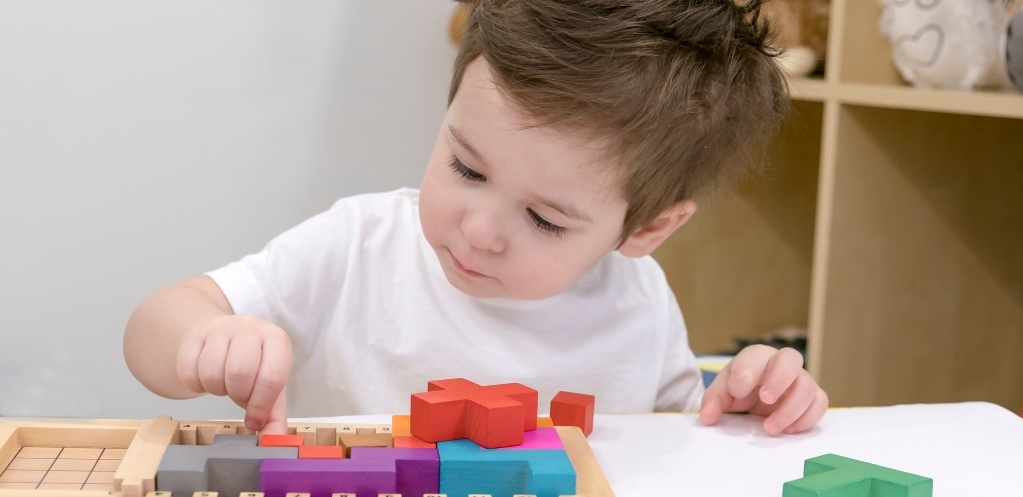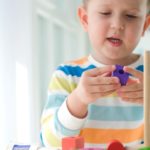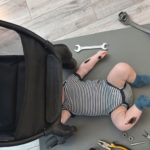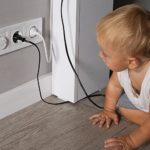Table Of Contents
- Understanding Baby Brain Development
- Benefits of Baby Brain Development Toys
- Types of Baby Brain Development Toys
- Choosing the Right Toys for Different Ages
- Tips for Maximizing Learning Through Play
- Safety and Quality Considerations
- FAQs About Baby Brain Development Toys
Every parent dreams of giving their little one the best start in life. One of the most effective ways to support your child’s early growth is through baby brain development toys. These special toys are more than just fun; they’re carefully designed to boost thinking, movement, and sensory abilities.
During the first three years, a baby’s brain grows faster than at any other stage of life. Providing the right toys at this time can make a remarkable difference in cognitive skills, problem-solving abilities, and even social-emotional growth. At Mumzworld, parents can find a wide range of carefully chosen toys that encourage healthy development while ensuring safety and quality.
Understanding Baby Brain Development
Your baby’s brain is like a sponge, absorbing every sight, sound, and touch. By age three, around 80% of brain connections are already formed. This is why baby brain development toys play such a vital role.
Toys for baby’s brain growth do more than entertain—they shape how your baby learns about the world. When your infant shakes a rattle, grabs a soft block, or looks into a mirror toy, millions of neurons in the brain are firing, strengthening pathways for memory, focus, and learning.
Key areas supported by infant cognitive development toys include:
- Memory & Problem-Solving: Toys like puzzles and stacking cups promote logical thinking.
- Sensory Exploration: Textured sensory toys for infants sharpen touch and vision.
- Motor Development: Toys for fine motor skills and toys for baby’s gross motor skills develop physical coordination.
- Language Growth: Soft books for babies and interactive toys for infants encourage vocabulary building.
By consistently engaging with stimulating baby toys, your child builds the foundation for lifelong learning.
Benefits of Baby Brain Development Toys
Parents often ask: “Why are baby brain development toys so important?” The answer lies in the holistic benefits they provide across developmental areas.
1. Cognitive Growth
- Educational baby toys encourage recognition of shapes, colors, and numbers.
- Baby puzzles and developmental toys for 1-year-olds support problem-solving.
2. Motor Skill Development
- Toys for hand-eye coordination, like stacking rings, sharpen precision.
- Baby activity centers encourage crawling, pulling, and standing—essential for gross motor growth.
3. Sensory Stimulation
- Sensory toys for infants engage touch, sound, and sight.
- Baby play mats and gyms with different textures enhance sensory exploration.
4. Emotional and Social Development
- Interactive toys for infants promote bonding with parents and siblings.
- Learning toys for babies that involve music and rhythm foster joy and emotional well-being.
5. Confidence & Independence
- Montessori toys for newborns encourage babies to explore independently.
- Cognitive development activities give babies a sense of achievement when they solve challenges.
In short, baby brain development toys are essential tools for creating happy, curious, and capable learners.
Types of Baby Brain Development Toys
There are many types of baby brain development toys available. Choosing a mix ensures comprehensive growth:
1. Montessori Toys for Newborns
Montessori toys for newborns encourage independent play and sensory learning. These include soft blocks, rattles, and simple manipulative toys.
2. Toys for Fine Motor Skills
Toys for fine motor skills, such as stacking cups and shape sorters, help develop hand strength and coordination.
3. Baby Activity Centers
Activity centers combine multiple learning elements. They keep babies engaged while promoting cognitive and physical development.
4. Developmental Toys for 6-Month-Olds
At six months, babies explore textures and sounds. Toys with lights, buttons, and mirrors are perfect for sensory and cognitive growth.
5. Interactive Toys for Infants
Interactive toys for infants, including musical toys and soft books for babies, encourage exploration and cause-and-effect understanding.
6. Toys for Hand-Eye Coordination
Toys for hand-eye coordination, like puzzles and stacking rings, improve visual-motor skills.
7. Soft Books for Babies
Soft books for babies introduce early literacy, sensory exploration, and interactive play in a safe, non-toxic format.
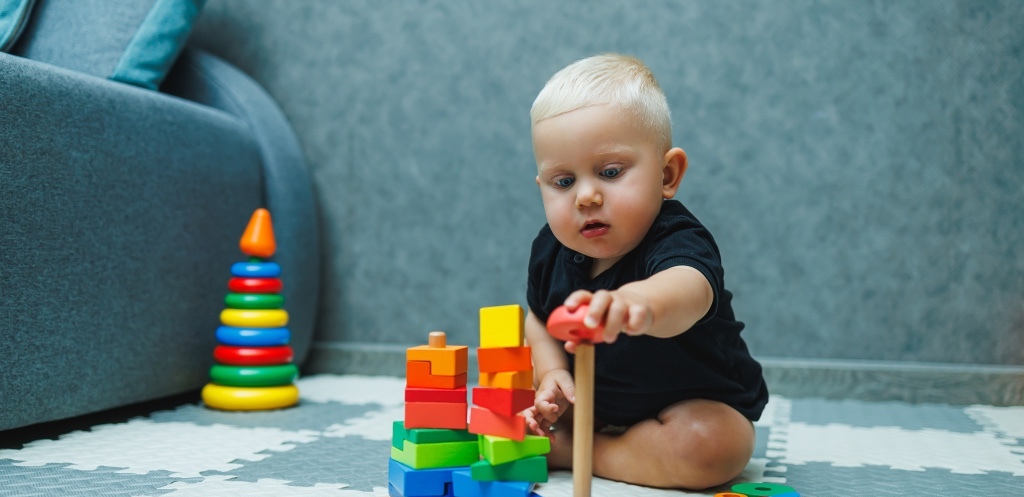
Choosing the Right Toys for Different Ages
Not all toys are suitable for every stage. Here’s a quick age-by-age guide:
- 0–6 Months: Focus on sensory toys for infants like rattles, mobiles, and baby play mats and gyms.
- 6–12 Months: Introduce toys for baby’s gross motor skills, baby activity centers, and developmental toys for 6-month-olds.
- 12+ Months: Offer developmental toys for 1-year-olds, baby puzzles, soft books for babies, and interactive toys for infants.
Always check the label for age-appropriate recommendations. Choosing the best toys for baby development ensures safe and effective growth at every stage.
Tips for Maximizing Learning Through Play
Simply owning baby brain development toys isn’t enough—how you use them daily makes all the difference. Babies thrive when toys are used with purpose and variety. Here are some detailed strategies:
Rotate Toys Frequently
- Babies can quickly lose interest if they see the same toys every day. By rotating toys weekly, you reintroduce novelty and prevent overstimulation.
- For example, keep two or three toys out on the play mat while storing others away. When you reintroduce them later, your baby will treat them like something new.
- Rotating toys also ensures balanced exposure to different learning experiences, such as sensory toys for infants one week and toys for hand-eye coordination the next.
Play Together
- Babies learn through observation and imitation. When you show them how to shake a rattle, press a button on a toy, or turn the pages of soft books for babies, they’re more likely to repeat the action.
- Interactive toys for infants become more meaningful when parents engage. Singing along with a musical toy or clapping when your baby stacks blocks creates a fun, encouraging environment.
- This type of guided play strengthens parent-baby bonding while reinforcing language and social skills.
Encourage Problem-Solving
- Resist the urge to step in too quickly when your baby struggles with a puzzle piece or shape sorter. Problem-solving is part of the learning process.
- Give gentle hints rather than solutions. For instance, point to the matching hole of a shape sorter instead of placing the block for them.
- These small challenges with cognitive development activities foster patience, persistence, and logical thinking.
Mix Sensory Inputs
- Babies learn best when multiple senses are stimulated at once. Pair a textured toy with gentle music or encourage your baby to crawl toward a toy that makes sound.
- Baby play mats and gyms are perfect for combining sight, sound, and touch in one setting.
- This multisensory approach strengthens brain connections and makes play more engaging and memorable.
Encourage Independence
- While playing together is important, it’s equally valuable to give babies space to explore on their own.
- Montessori toys for newborns are specifically designed to support self-led discovery, such as stacking rings, bead mazes, or fabric pull toys.
- Independent play builds confidence, self-regulation, and curiosity—key traits for future learning success.
By following these strategies, parents can turn every play session with baby brain development toys into a meaningful, growth-centered activity rather than just passing time.
Safety and Quality Considerations
When it comes to your baby, safety is non-negotiable. Choosing the right baby brain development toys means balancing fun and educational value with safety and durability. Here’s what to keep in mind:
Always Opt for Non-Toxic Learning Toys
- Babies love to explore with their mouths. Non-toxic learning toys made from BPA-free plastics, food-grade silicone, or organic cotton ensure they’re safe even when chewed.
- Look for labels like “phthalate-free” and “lead-free” to avoid harmful chemicals.
Avoid Sharp Edges or Small Parts
- Any detachable or tiny piece can become a choking hazard. Always choose toys that are too large to fit in a baby’s mouth.
- Baby puzzles and stacking toys should be chunky with smooth edges.
Ensure Toys Are Washable or Easy to Clean
- Babies drool, spill, and throw toys. Washable materials, like machine-safe fabrics or wipe-clean plastics, make it easier to keep toys hygienic.
- Soft books for babies and plush toys should be easy to launder.
Buy from Trusted Sources
- Not all toys in the market meet safety standards. Buying from reputable stores like Mumzworld ensures that you’re choosing quality-controlled, durable, and safe developmental toys.
Look for Certifications
- Safety marks such as CE (Conformité Européenne) or ASTM (American Society for Testing and Materials) show that toys have been tested for hazards.
- Certified toys reduce the risk of exposure to unsafe materials or faulty designs.
Regularly Inspect Toys
- Even the best toys wear down over time. Check regularly for cracks, loose stitching, or broken parts. Replace or repair damaged toys immediately to avoid accidents.
Safe play equals worry-free growth. By selecting baby brain development toys that are durable, tested, and age-appropriate, parents can focus on the joy of watching their little ones learn and thrive.
FAQs About Baby Brain Development Toys
Q1: When should I start using baby brain development toys?
A1: You can start introducing sensory and interactive toys from birth. Early exposure supports cognitive, motor, and sensory development.
Q2: How many toys are appropriate for my baby?
A2: Quality matters more than quantity. A selection of 5–10 diverse toys can be rotated regularly for maximum stimulation.
Q3: Can these toys improve my baby’s intelligence?
A3: While toys do not directly increase IQ, baby brain development toys enhance cognitive, sensory, and motor skills that support overall learning.
Q4: Are electronic toys better than traditional toys?
A4: Traditional and Montessori toys often provide richer sensory and motor skill development. Electronic toys can supplement but shouldn’t replace hands-on play.
Q5: How can I encourage my baby to engage with toys?
A5: Demonstrate use, play together, and offer praise. Baby brain development toys work best when interaction and guidance are provided.
Conclusion
The first years of life are a golden window for growth, and the right baby brain development toys can make a lasting impact. From stimulating curiosity with sensory toys for infants, to boosting problem-solving with baby puzzles, and encouraging movement with baby play mats and gyms, every toy plays a role in shaping your little one’s journey.
Parents don’t need to buy hundreds of toys—just a thoughtful selection of educational baby toys, toys for fine motor skills, and interactive toys for infants can cover all areas of growth. By focusing on variety, safety, and age-appropriate design, you’ll be supporting your baby’s cognitive, motor, and emotional development in a fun, stress-free way.
Remember, toys are not just objects of entertainment—they’re tools that help babies understand the world, strengthen brain pathways, and build confidence. And with trusted platforms like Mumzworld, you can be sure that every toy is carefully chosen, non-toxic, and designed to encourage safe and meaningful play.
Investing in baby brain development toys means investing in your child’s future—one play session at a time.
Using baby brain development toys effectively ensures your child reaches key milestones in cognitive, sensory, and motor skills. With careful selection of educational baby toys, sensory toys for infants, and developmental tools, parents can provide a rich learning environment at home. Toys like baby play mats and gyms, activity centers, and soft books for babies enhance exploration, creativity, and problem-solving from an early age.
By choosing the best toys for baby development, including toys for fine motor skills, hand-eye coordination, and cognitive development activities, you’re investing in a strong foundation for lifelong learning.
Selected Products to Support Your Motherhood Journey from Mumzworld
Because Mumzworld brings together trusted global brands in one place, you can explore a variety of products that make your parenting journey easier and more comfortable, including:
- Baby Monitor to keep track of your little one’s safety.
- Breast Pumps to support and simplify breastfeeding.
- Baby Bottles designed for safe and easy bottle-feeding.
- Diaper Bags for convenient movement when outside the home.
- Disposable Diapers for comfort and ease during travel and daily activities.


